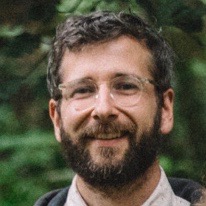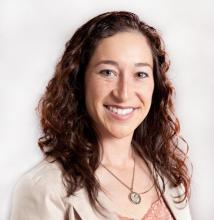A How-to Guide: Integrity Assessments for Conventional and Unconventional Resources
This workshop includes free access to our one-hour recorded webinar "The Seven Aspects of Integrity in Summary" at no additional cost. Simply register for this program and you will receive the other webinar by email.
This intermediate to advanced level workshop will examine integrity in four equal online modules in the month of September during lunch. All registrants will receive access to recordings and handouts after the program, as well as continuing education units for AICP, AIA, and ASLA.
- Part 1: The Seven Aspects of Integrity - Introduction (recorded)
- Part 2: Integrity and the Presidio, September 8, 2020 NOTE: This day's session runs from 9 am to 10 am!
- (Megan Borthwick moderate) Intro (5 mins) Megan Borthwick
- Architecture: Adaptive Reuse (Presidio)
- Landscape: Designed/Natural/Organic (Presidio)
- Archaeology (Presidio) Video (10-15 mins) Q&A (30-40 mins)
- (Megan Borthwick moderate) Intro (5 mins) Megan Borthwick
- Part 3: Urban, September 15, 2020 lunchtime, 12-1 pm
- Intro (5 mins)
- Residential for Criterion B and Integrity
- Historic District
- Part 4: Unusual, September 22, 2020 lunchtime, 12-1 pm
- Intro (5 mins)
- Path of Gold
- Railroad (FRA)
- Bridges
Navigating the applicability of all 7 aspects of integrity as defining by the National Register can be tricky especially as significance statements become broader and resource types more varied. This workshop will go through different ways of the thinking about integrity with regards to buildings and structures, linear resources, archaeological sites, historic districts and unconventional resources.
We Will...
- Identify how much change different resources can handle before there is a loss of historic integrity that would cause it to no longer be eligible or listed on the National Register and/or California Register.
- Look at how the Secretary of the Interior’s Standards (SOIS) plays into a discussion of historic integrity, exploring how much room there is for change within the SOIS.
- Use presentations from speakers, case study discussions and group exercises - all online. If you have specific examples that you would like to discuss, please feel free to bring these up during the workshop.
You Will Be Able To...
- Identify which aspects of integrity are most pertinent to different resources.
- Complete integrity assessments for a range of resource types.
- Identify when there is too much integrity loss that the resource is no longer considered historic.
- Recognize the links between historic integrity, and the applicability of Secretary of the Interior's Standards.
Speakers
Christopher Caputo, Chief, Office of Cultural Resource Studies, Caltrans
Rob Thompson, Federal Preservation Officer, Presidio Trust
Megan Borthwick, Presidio Trust
 Gretchen Hilyard Boyce, Senior Preservation Planner, ICF. Gretchen has 14 years of experience assisting public agencies and private sector clients in developing proactive solutions for the management of historic and cultural resources. She has unique experience having worked in both public and private sectors throughout her career, with past positions at the National Park Service, San Francisco Planning Department, and private consulting. Gretchen manages ICF’s San Francisco-based built resource team in the preparation of cultural resources studies to support federal, state and local environmental compliance. Her specialty in cultural landscapes demonstrates her unique big-picture perspective on cultural resource management that bridges the divide between traditional built, cultural, and natural resource practices. She has conducted cultural landscape projects across the United States and was a co-author of the National Park Service’s (NPS) Professional Procedures Guide for the Preparation of Cultural Landscape Inventories. Gretchen received a B.A. in architectural history from the University of Virginia and an M.S. in historic preservation from the University of Pennsylvania.
Gretchen Hilyard Boyce, Senior Preservation Planner, ICF. Gretchen has 14 years of experience assisting public agencies and private sector clients in developing proactive solutions for the management of historic and cultural resources. She has unique experience having worked in both public and private sectors throughout her career, with past positions at the National Park Service, San Francisco Planning Department, and private consulting. Gretchen manages ICF’s San Francisco-based built resource team in the preparation of cultural resources studies to support federal, state and local environmental compliance. Her specialty in cultural landscapes demonstrates her unique big-picture perspective on cultural resource management that bridges the divide between traditional built, cultural, and natural resource practices. She has conducted cultural landscape projects across the United States and was a co-author of the National Park Service’s (NPS) Professional Procedures Guide for the Preparation of Cultural Landscape Inventories. Gretchen received a B.A. in architectural history from the University of Virginia and an M.S. in historic preservation from the University of Pennsylvania.
 Jon Rusch, Senior Historic Preservation Specialist, ICF. Jon Rusch has over seven years of professional experience supporting public agencies and private-sector clients as they develop plans for historic buildings and cultural landscapes. His work has spanned the United States—with a focus on the West Coast—and has involved preparing context studies, conducting surveys, and evaluating a wide range of resource types in urban and rural settings. Jon is a senior historic preservation specialist at ICF, where he provides technical expertise, quality control, and project management for cultural resources services based out of the Bay Area. Jon finds satisfaction working in out-of-the-way places, dealing with idiosyncratic resource types, and crafting complex evaluations. A native of South Dakota, he holds an M.A. in historic preservation planning from Cornell University.
Jon Rusch, Senior Historic Preservation Specialist, ICF. Jon Rusch has over seven years of professional experience supporting public agencies and private-sector clients as they develop plans for historic buildings and cultural landscapes. His work has spanned the United States—with a focus on the West Coast—and has involved preparing context studies, conducting surveys, and evaluating a wide range of resource types in urban and rural settings. Jon is a senior historic preservation specialist at ICF, where he provides technical expertise, quality control, and project management for cultural resources services based out of the Bay Area. Jon finds satisfaction working in out-of-the-way places, dealing with idiosyncratic resource types, and crafting complex evaluations. A native of South Dakota, he holds an M.A. in historic preservation planning from Cornell University.
 Danielle Campbell, AIA, NCARB, Associate / Diagnostics, Walter P Moore. Having worked in the AEC industry since 2011, Danielle is a forensic architect and project manager in Walter P Moore's San Francisco Diagnostics Group. Specializing in building envelope consulting for both new and historic buildings, she thoroughly enjoys building envelope testing and documentation on new construction project sites as well as solving problems in existing buildings.
Danielle Campbell, AIA, NCARB, Associate / Diagnostics, Walter P Moore. Having worked in the AEC industry since 2011, Danielle is a forensic architect and project manager in Walter P Moore's San Francisco Diagnostics Group. Specializing in building envelope consulting for both new and historic buildings, she thoroughly enjoys building envelope testing and documentation on new construction project sites as well as solving problems in existing buildings.
Danielle earned her Bachelor of Architecture with minors in Historic Preservation and Italian from the University of Oregon.
 Helen Blackmore, Senior Environmental Planner and Branch Chief, Architectural History, Caltrans. I am a professional architectural historian with academic tendencies. I am originally from England and moved to Canada to complete my BA, and then to the US for my MSc. Working in the Bay Area for a project delivery company has provided opportunities and challenges in the application of my personal preservation ethics and ideas on how the field should move forward. I strive to learn new theories and methodologies with the goal of furthering the field that I grew up loving and admiring.
Helen Blackmore, Senior Environmental Planner and Branch Chief, Architectural History, Caltrans. I am a professional architectural historian with academic tendencies. I am originally from England and moved to Canada to complete my BA, and then to the US for my MSc. Working in the Bay Area for a project delivery company has provided opportunities and challenges in the application of my personal preservation ethics and ideas on how the field should move forward. I strive to learn new theories and methodologies with the goal of furthering the field that I grew up loving and admiring.
You Will Be Able To...
- Identify which aspects of integrity are most pertinent to different resources.
- Complete integrity assessments for a range of resource types.
- Identify when there is too much integrity loss that the resource is no longer considered historic.
- Recognize the links between historic integrity, and the applicability of Secretary of the Interior's Standards.
